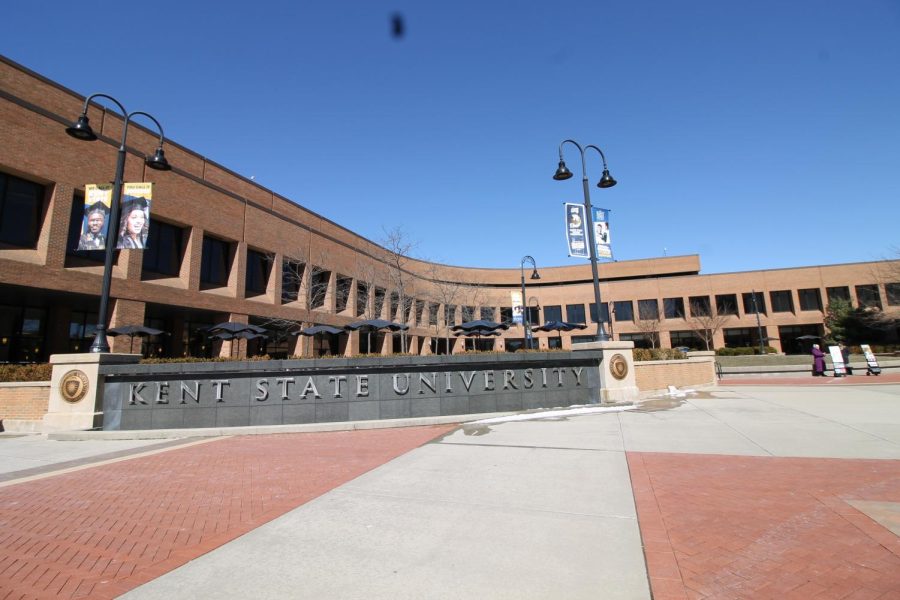The Faculty Senate approved a motion to create a new university policy regarding graduate assistantships during its meeting Monday. This new policy requires graduate students to have at least eight credit hours a week during a semester and six hours during the summer.
The Associate Dean for the Graduate College, Christa Porter, brought forward the motion.
“Colleges have always had guidance on how to work with their graduate students and what’s considered an assistantship, but this is the first time it will be located within the policy register,” she said.
The Graduate College website defines an assistantship as providing students with training and valuable professional experience in higher education work environments. Assistantships are also a form of financial aid, as graduate assistants receive a stipend from the university.
The reevaluation of the Kent Core curriculum was also discussed at the meeting. One of the committees, led by associate professor of cultural foundations David Dees, has been reviewing the current Kent Core General Education Requirement.
The committee has conducted interviews and surveys with alumni, students and professors and will begin student listening tours this upcoming spring semester.
“I think this will be our fourth or fifth time we’ve looked at it since it’s been in existence since the 1970s,” he said. “This is just another re-envisioning of updating it, making sure that it aligns with who our students are and [making] sure it aligns with what we believe as a university.”
Dees plans to have four model frameworks for a reorganized Kent Core ready by Dec. 15.
Students most commonly complain about having to take general education classes unrelated to their major or minor to fulfill Kent Core requirements, according to Dees.
“We believe that this kind of experience broadens your knowledge base,” he said. “It should add to your major.”
All colleges and universities in Ohio must have a general education requirement as mandated by Ohio Transfer 36. The legislation allows students to transfer credits between schools across the state.
The Faculty Senate approved changing the university’s cheating and plagiarism policy, adding a definition for what qualifies as artificial intelligence or a Generative Artificial Intelligence (GAI) Program.
Now, any internet-based generative artificial intelligence program that uses large language model algorithms to create something new will be considered plagiarism, according to a handout provided at the meeting. The policy elaborates that programs like auto-complete, text predictors and grammar/spelling/punctuation suggestions do not count as part of the definition.
Vice President of Enrollment Management Sean Broghammer provided an update on the university’s admissions.
Broghammer reported there has been an increase in freshmen and sophomores but a decrease in the number of juniors and seniors. He also raised concerns over the reduction in domestic graduate applicants.
During the chair’s remarks, Faculty Senate Chair Tracy Laux raised concerns about the administration’s travel spending.
“I’m suggesting that they take careful consideration of their travel expenditures, just as faculty have had to do with our reduced budgets in response to the financial constraints we’re dealing with because of the legislature in the state of Ohio,” he said.
Laux adjourned the meeting with all motions passing unanimously.
Michael Neenan is a reporter. Contact him at [email protected]





